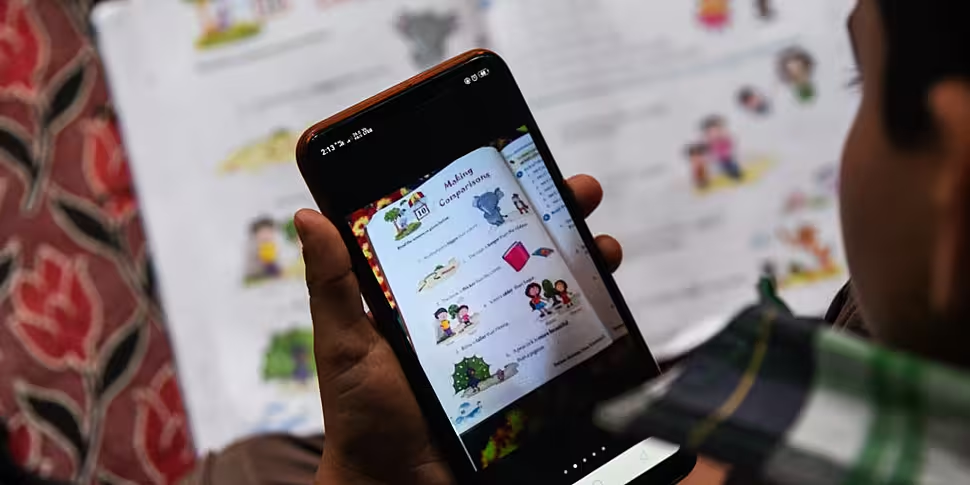Parents need to “think much more carefully” about handing their children smart devices according to an internet safety expert.
A new survey from CyberSafeIreland has found that 93% of pre-teens, aged eight to 12-years-old, own a smart device.
Meanwhile, one third game online with strangers and almost one-third have strangers following them on social media.
On Newstalk Breakfast this morning, CyberSafeIreland CEO Alex Cooney said parents are, “definitely handing over devices without considering the ramifications of our children being online.”
She said tablets and games consoles are the most common devices owned by children up until the age of 11 or 12 when smart phones start to become “much more popular.
“Many parents will say, ‘oh I am holding off on the smart phone; I am not going to give them the smart phone until sixth class or whatever,’” she said.
“But they do have these other devices that connect to the internet and I think we need to think about any device that connects to the internet whether it is a tablet of a games console or an iPod touch or whatever because they all have that functionality – they all give access to the internet.
“We need to think about when they are using them and where they are using them – is it in a family space or is it in a bedroom with the door shut, where you are really shut out of whatever they are doing online.
“So, I think there are ramifications and we do need to think much more carefully about them.”
Ms Cooney said talking to strangers is very common in many online games – and children need to be prepared so they can protect themselves.
“We find that, in gaming, it is quite a difficult message to get across, to never chat to people you don’t know, because it is quite a normal part of the game,” she said.
“So, what we need to say to kids, if they ever do find themselves in the context of the game chatting to strangers, that should never go further.
“No personal information, such as your name, date of birth or where you live is ever shared at all. It never goes further than that chat in that game.
”I think with social media, it is a bit different because obviously we are tending to share more of our lives with social media so if a third of kids have friends and followers they don’t know then those people are potentially having access to more information about our lives – and that is of concern.”
She said parents right around the country “need to do a lot more to prepare children for their online journey.”
“We need to be having these conversations on a regular basis,” she said. “We need to think about what apps and games they are playing and whether they are appropriate for our kids. We just need to keep reinforcing those messages.
“We also need to put more pressure on the government to put in place measures to protect and empower children online to support parents by running information campaigns.
“We need to put pressure on industry to put better safeguards in place. Things like privacy by default. Why are our online accounts set to public by default? They should be set to private and we can choose to change them if we wish.
“So, I think there is a lot more we need to do and there are many stakeholders who have a role to play here.”
You can listen back here:









